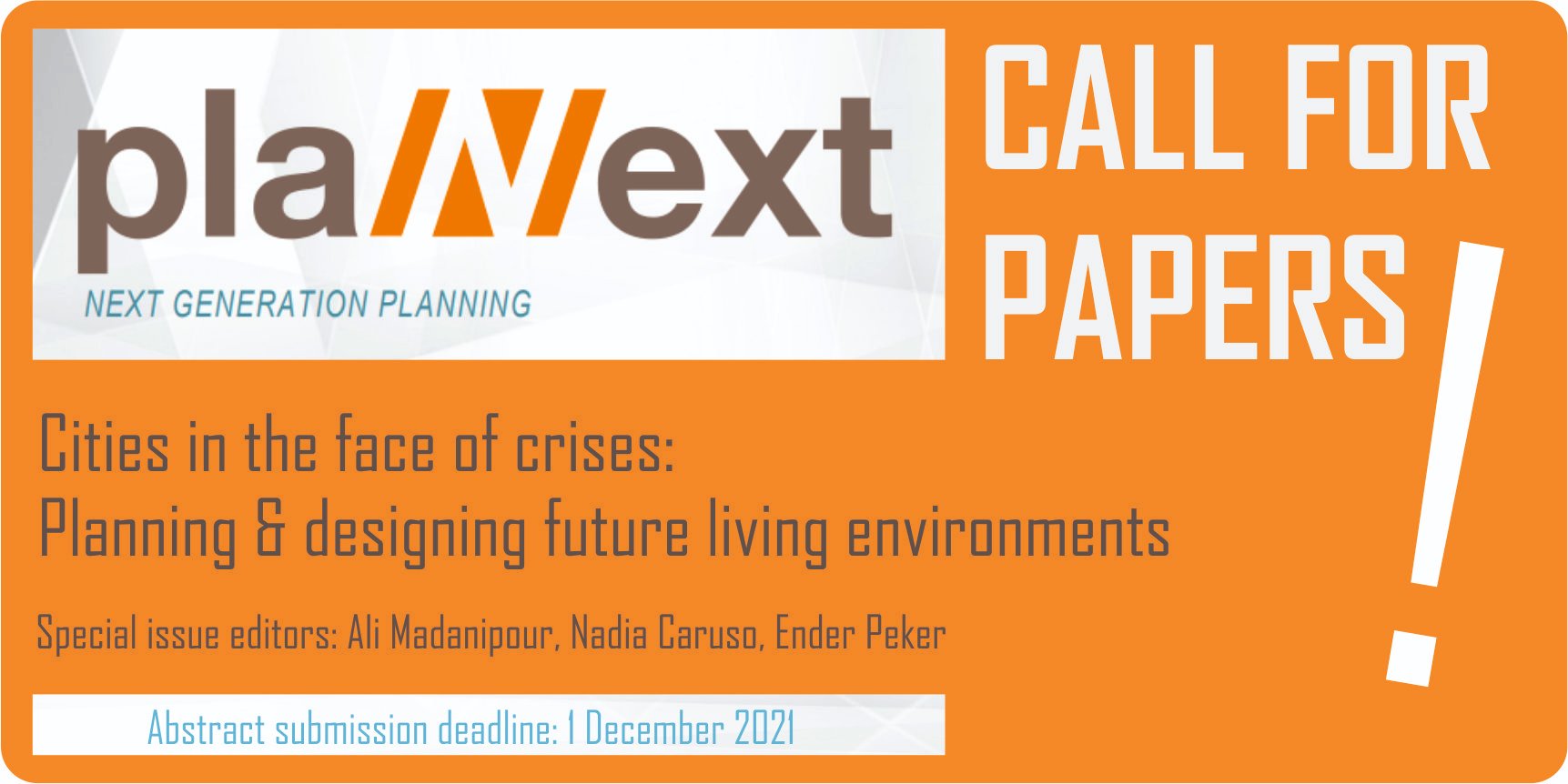PlaNext-AESOP Call for papers: Special issue Cities in the face of crises: Planning & designing future living environments
5 min. read
In our interest for this call to reach further and particularly to Young Academics, we are happy to present the most recent PlaNext (AESOP Young Academics Open Access Journal) call for papers:
Special issue Cities in the face of crises: Planning & designing future living environments.
Deadline for abstracts: 01st December 2021.
The Covid-19 pandemic hit cities all around the world as an acute shock. Both in the emergency and recovery periods, we have seen the significance of local action in search of urgent responses to the challenges created by the pandemic in cities. One way or another, planning authorities have developed temporary solutions trying to cope with the health problems in everyday life. While different actors developed strategies deployed to deal with mostly the impact on public health, it is questionable how they responded to the urban inequalities derived from socio-spatial injustice in cities.
At the moment, a number of cities are debating the need for new long-term recovery plans and programmes in order to develop frames and new visions for policy and practice. This moment could be considered as a new window of opportunity to trigger changes. These attempts display the significance of preparing cities for known and unknown stresses in future.
The current situation opens up the main question: Could the pandemic shock be a triggering point for learning how to respond to complex environmental, health, and socio-spatial inequalities? In what ways can it catalyse the development of alternative coping mechanisms for future challenges? How can local authorities respond to future crises better? In the first period of emergency, public action has been devoted to health measures and the management of public spaces. Going beyond these dimensions, what type of spatial mediums are needed? And more specifically, how do local authorities approach the planning and design of public spaces for all in this changing context? What new conditions may provide the ability to manage urban inequalities in public spaces?
We are specifically interested in mapping the opportunities crisis may produce, and the different planning and design-related effective responses to the Covid-19 pandemic in different socio-spatial contexts. Contributions, including research papers and shorter pieces, may report empirical and/or theoretical inquiries in relation, but not limited, to any of the following themes:
- Challenges for planning and designing public spaces
- Temporality and public space
- Change in urban governance: demands, actors, resources, initiatives and forms of support
- Spatial effects of forced migration and mobility
- Planning and designing new modes of consumption
- Rise in the socio-spatial inequalities (gentrification, polarization, marginalization...)
- Transformative urban recovery programs
- Changes in mobility and infrastructures (needs and solutions)
- Emerging new lifestyle patterns in cities
The submitted manuscripts will be published in the open-access journal plaNext – Next Generation Planning. Please send an abstract (150 words) expressing your interest by 01 December 2021. Your abstract should outline the special theme, geographical area, and research questions clearly.
Once you have been notified of abstract acceptance you will be asked to submit a full paper (7000 words) by 28th February 2022.
About plaNext–Next Generation Planning
plaNext–Next Generation Planning is an international peer-reviewed open access e-journal. The young academics network of AESOP founded plaNext to provide prospective authors with an opportunity to engage their ideas in international planning debates as well as to make their research available to the broader planning audience. plaNext invites authors to submit original work that includes: empirical research; theoretical discussions; innovative methodologies; case studies; and book reviews on selected books, textbooks, or specific topics dealing within planning.
Two volumes are published per year. The first volume compiles manuscripts submitted any time of the year, investigating any planning related issue. Manuscripts would be published as Online First, once submitted manuscripts become accepted for publication. The second volume consists of selected contributions from the annual conference of AESOP’s Young Academics Network. All manuscripts published in plaNext are published open access and thus are freely and permanently available to the general public for comments and discussions.
For more information about plaNext you are welcome to reach us at
When you subscribe to the blog, we will send you an e-mail when there are new updates on the site so you wouldn't miss them.



Comments